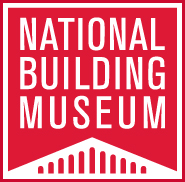The Middle East Institute (MEI), together with National Building Museum and the British Council, hosted a panel discussion with Tania El Khoury, J.J. El-Far, Bassam Haddad, and Natasha Hall on the transformative potential of art.
Panelists analyzed the role and impact of the arts in providing insight into the causes of conflict and their ability to provide alternative realities. They highlighted the role of the arts as a tool of soft power within the fields of international relations and cultural diplomacy. The speakers drew from their experiences working on initiatives in which cultural diplomacy and the arts were positive drivers with which to approach difficult social issues, crises and conflict situations, and as an economic tool for building more stable societies.
The panel aimed to keep alive the conversation about the human aspect of the Syria conflict and remind audiences about the peaceful seeds of the Syrian revolution and the optimism that marked the beginning of the uprising. Kim Ghattas moderated the event.
Speaker Biographies:
Tania El Khoury
Beirut-Based Live Artist
Tania El Khoury is a Beirut-based live artist is currently touring her work internationally. Her work focuses on creating immersive and challenging performances and engages the audience in active collaboration. El Khoury has performed in real sites, ranging from the great hall at the British Museum to an old church in Beirut that once was used as a military base during the Lebanese civil war. She is also the co-founder of Dictaphone Group, a collective using research-based live art with the aim of reclaiming public space and opening up wider political discussions in and around the city. She has won the Total Theatre Award for Innovation, the Arches Brick Award, and Artsadmin Bursary on her work as a solo artist. El Khoury has collaborated with performer and producer Petra Serhal on creating site specific performances informed by on-the-ground research. These projects have focused on questioning the relationship between citizens to the city, with a focus on public space and its redefinition.
J.J. El-Far
Arts Program Officer, British Council USA
J.J. El-Far is an Arab-American artist and creative producer based in Harlem, NYC. She specializes in the role of arts in conflict transformation, social action, and community building. She is the co-founder, chair of the board, and former creative director of the Harlem Arts Festival, which supports emerging artists within the Harlem community. The festival has showcased more than 150 artists since 2012 and has garnered press from media outlets such as ABC News, The New York Times, Time Out New York, and The New York Daily News, among others. She is the arts program officer at the British Council, USA where she produces arts programs that support cultural relations between the U.S. and U.K.
Bassam Haddad
Director of Middle East Studies, George Mason University
Bassam Haddad is the director of the Middle East studies program at George Mason University (GMU). He is also a teacher in the School of Policy, Government, and International Affairs at GWU and a visiting professor at Georgetown University. His research interests include the political economy of development, violence, terrorism, and U.S. foreign policy, and knowledge production and pedagogy. Bassam serves as the founding editor of the Arab Studies Journal, a peer-reviewed research publication, and as executive director of the Arab Studies Institute, an umbrella group for four organizations dealing with knowledge production on the Middle East. He also serves on the editorial committee of Middle East Report and is co-founder and editor of Jadaliyya Ezine. Bassam co-produced and directed of the award-winning documentary film About Baghdad (2004) as well as a critically acclaimed film series on Arabs and terrorism based on extensive field research and interviews.
Natasha Hall
Director, Art in Exile
Natasha Hamarneh Hall is the founder of Art in Exile, an organization that explores artistic expression during times of tyranny, war, and exile. Art in Exile creates a platform and community for exiled and refugee artists from all disciplines to showcase their work, tell their stories, and remind the world that civilians seeking freedom from extremists and brutal regimes are still suffering and speaking out. Hall is originally from Jordan and has worked on education and protection issues in Jordan, Syria, Iraq, Turkey, and Egypt. For the past five years, she has traveled around the world to interview refugees from over 15 countries. She trained NGOs, INGOs, and government officials about the conflicts in Syria and Iraq and particularly exposes the needs of Palestinians from Syria. She initiated a project called Photos to Develop in 2006 where she taught children, primarily girls, leading semi-nomadic lives in the Badia how to use cameras and use their pictures to raise awareness about issues they face in their communities.
Kim Ghattas
Journalist, BBC and Foreign Policy
Kim Ghattas covers international affairs and the Hillary Clinton campaign for the BBC from her base in Washington D.C. and writes a regular column for Foreign Policy magazine. She was the BBC's State Department correspondent from 2008 until 2013, travelling regularly with the Secretary of State. She wrote a New York Times best seller, The Secretary- a Journey with Hillary Clinton from Beirut to the Heart of American Power (Times Books, 2013). Before moving to D.C., she was a Middle East correspondent for the BBC and the Financial Times, based in Beirut. She was part of an Emmy-Award-winning BBC team covering the Lebanon-Israel conflict of 2006. She covered Syria, Iraq and Saudi Arabia extensively. Her work has also been published by the Washington Post, The Daily Beast, and TIME magazine. She appears regularly on NPR and American television shows to discuss foreign policy.
Sponsored By:














